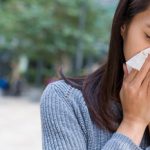
Bushfires are common in Australia and can lead to a natural disaster. It’s important to understand your level of bushfire risk so you can prepare your property, protect your health and know what to do if a fire starts.
Bushfires can occur at any time in Australia, although some regions will be at greatest risk at a specific time of the year. It’s important to be prepared year round.
Am I at risk of a bushfire?
If you live, work or travel near bushland, grassland or farmland, you could be at risk of a bushfire. Even if you aren’t that close, you could still be in danger if a fire breaks out, because embers from a bushfire can travel for many kilometres. Most houses suffer damage during a fire because embers have travelled from an outbreak elsewhere.
Your local council or fire service can tell you how bushfire-prone your area is.
How do I prepare for a bushfire?
To ensure you are prepared for a bushfire, you should:
- make a bushfire preparation plan (or bushfire survival plan)
- prepare your property
- prepare an emergency kit, considering your specific health needs and those of any family members or people you care for
- be familiar with the fire danger ratings used in your area (for example, ‘severe’ or ‘extreme’), as well as bushfire alert levels (for example, ‘watch and act’ or ’emergency warning’)
- stay informed and up to date about local conditions (see, ‘How can I stay informed about bushfires?’, below)
Your local rural fire service will have information about preparing for a bushfire on its website. It may also have a template you can use to make a bushfire survival plan.
Having a well-thought-out plan is especially important if you are responsible for other people.
What are the health risks associated with bushfires?
If you or people in your care have limited mobility, a disability or medical conditions, take these into account when preparing for a bushfire. Make sure you leave early if there is a high fire danger so you have plenty of time to get out safely.
Ask yourself:
- Does my emergency kit contain relevant prescriptions?
- Are there medicines, or special equipment, I need to take with me when I leave?
- What will I do with my medications if they need to be refrigerated (insulin, for example)?
- Will the place I am going to have the resources I need?
If you need to leave without your prescriptions or medications, or they are lost, contact the local pharmacy who may be able to call your doctor for a verbal prescription. Your doctor can also organise to provide a prescription early. Keep your doctor’s information handy for these situations.
How can bushfire smoke affect your health?
You should also consider how smoke might affect you. Bushfire smoke can cause a range of problems, including shortness of breath and cough. Many of these problems are serious.
If possible, stay inside with the windows and doors closed, preferably with the air conditioning on and set to re-circulate. When outdoors, you can wear a ‘P2’ face mask (available from chemists and hardware stores) provided it’s fitted correctly, with an air-tight seal around the mouth and nose.
What health conditions or circumstances put you more at risk during a bushfire?
Some people are more at risk of health issues during a bushfire — or when exposed to short- or long-term smoke — than others.
- Asthma: If smoke is a known trigger for your asthma symptoms, use your preventer medication and make sure you have access to your reliever medication. Follow your asthma action plan. Visit Asthma Australia for more advice.
- Other lung conditions: If you have an existing condition such as chronic bronchitis or emphysema, smoke can make your symptoms worse. Make sure you follow your COPD action plan, and seek medical advice if necessary. Visit the Lung Foundation Australia website for more advice.
- Heart and cardiovascular conditions: Smoke from bushfires can get into the bloodstream, contributing to inflammation and the narrowing of blood vessels. This can worsen existing conditions such as high blood pressure or heart failure. Read the Heart Foundation factsheet on bushfires and heart health.
- Diabetes: If you have type 1 or 2 diabetes and are affected by a bushfire, it’s essential that you know where to access more medication. Visit the National Diabetes Service Scheme (NDSS) to find your nearest NDSS access point.
- Pregnancy: Pregnant women should minimise their exposure to bushfire smoke. Prolonged exposure to air pollution in pregnancy has been linked to an increased risk of premature birth, lower birth weight, pre-eclampsia and gestational diabetes.
- Older people: Elderly people are more at risk during a bushfire or when exposed to smoke. If you’re an older person, make a plan to leave early if your area is likely to be affected and share the plan with carers or neighbours. If you’re a younger person, offer to help elderly family, friends or neighbours.
Bushfire Support Service
Bushfires can cause high levels of stress to the first responders working to keep Australian communities safe.
Mental health specialists, the Black Dog Institute and UNSW Sydney have developed the Bush Fire Support Service (BFSS) — free mental health support for emergency service workers affected by bushfires (and their partners).



